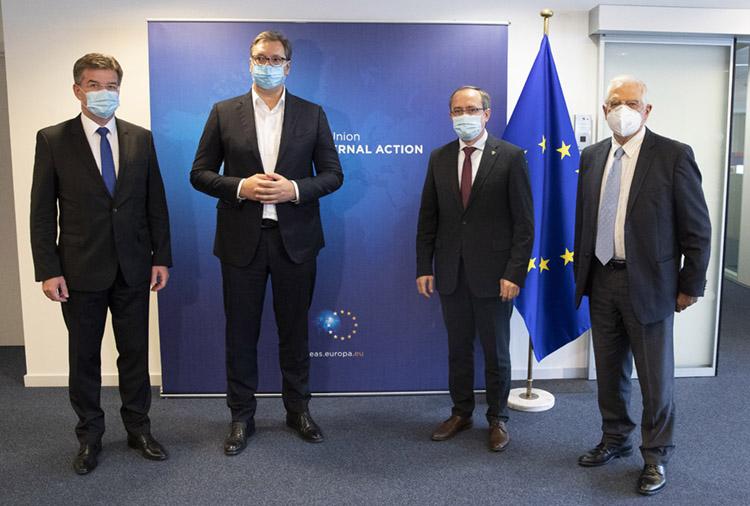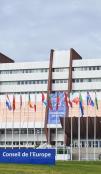The EU-facilitated Belgrade-Pristina Dialogue in 2020

With a new Commission, the visit of High-Representative for Foreign and Security Policy Jossep Borrell to Kosovo in January, the decision to open accession negotiations with Albania and North Macedonia in March, and a Western Balkans Summit under the Croatian EU Presidency in May, the European Union demonstrated a clear commitment to the Western Balkans.
In line with this renewed commitment to the region, EU Member States unanimously decided to create the post of a European Union Special Representative for the Belgrade-Pristina Dialogue and other Western Balkan regional issues and to appoint former Slovak Foreign Minister Miroslav Lajčák.
They equipped the new Special Representative with the clear mandate to facilitate a comprehensive, legally-binding agreement to normalise relations between Kosovo and Serbia and deal with all outstanding issues, once and for all. Because after 10 years of Dialogue, the overall understanding was that it is time to negotiate a final deal to bring the process to a successful end. Such an agreement should be in line with international law and EU acquis, which at the same time contributes to regional stability in the Western Balkans.
In June, once the COVID19 situation allowed for it, Special Representative Lajčák travelled to the Western Balkans to meet with his interlocutors in Pristina and Belgrade for the very first time in his new role. The Special Representative used his visit to listen and better understand ideas, wishes but also redlines and fears of his partners, but also to prepare the ground for the resumption of the Dialogue.
After an interruption of almost two years, the Dialogue resumed in July with a series of meetings – from a virtual Summit hosted by French President Emmanuel Macron and German Chancellor Angela Merkel, followed by a virtual high-level meeting of the Dialogue and continued with a first in-person meeting – all in the course of only one week. Upon the invitation of High-Representative Borrell, together with Special Representative Lajčák, Serbian President Aleksandar Vučić and Kosovar Prime Minister Avdullah Hoti met for the very first time to confirm the parameters of this complex and delicate negotiation process: namely reaching a comprehensive, legally-binding normalization agreement between Kosovo and Serbia, dealing will all outstanding issues once and for all. They also agreed on the main elements of the final deal to be negotiated.
Over the course of the summer, the two delegations led by their chief negotiators met five times in Brussels to discuss two topics of key importance for reconciliation and for their future cooperation.
In September, High Representative Borrell invited the leaders again to Brussels to agree on the first text elements of the Comprehensive Agreement addressing missing and displaced persons, as well as economic cooperation. The progress made until September allowed the negotiations to continue with the complex and sensitive issues of property and financial claims. Both have never before been discussed in the Belgrade-Pristina Dialogue, and are so broad that after three rounds of talks among the chief negotiators in Brussels, in December, all participants agreed to continue the discussions in 2021.
Earlier on, in October, Special Representative Lajčák again travelled to Pristina and Belgrade to get a full picture of the situation on the ground through interacting with all political parties, international actors and civil society.
One of the highlights of his second visit to the region was a pit stop on the drive from Pristina to Belgrade at the common crossing point in Merdare. With 4.6 million Euros, the European Union financed and built the new permanent premises of the common crossing point in Merdare, one of six common crossing points agreed under the facilitation of the EU in the Belgrade-Pristina Dialogue back in 2011.
With the interest of EU Member States remaining high throughout 2020 – illustrated by the special request of some Foreign Ministers to update them at the monthly Foreign Affairs Council in October 2020 and numerous invitations to visit EU capitals - High Representative Borrell supported by Special Representative Lajčák is looking forward to a productive and fruitful 2021.





